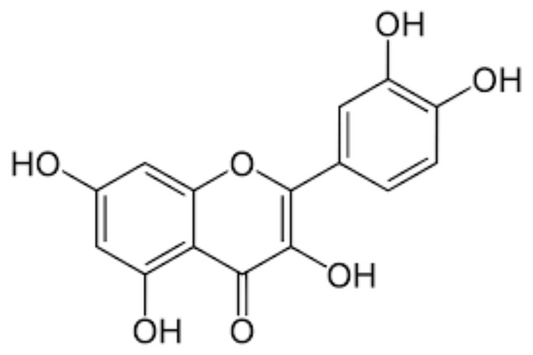Vitamin D is a fat-soluble vitamin that is crucial for overall health, and its benefits extend beyond bone health.
- Bone Health: Reduced Risk of Fractures: Vitamin D supplementation can reduce the risk of fractures by approximately 20% (Source: JAMA Internal Medicine).
- Immune Support: Reduced Infection Risk: Adequate Vitamin D levels may reduce the risk of respiratory infections by approximately 12% (Source: The BMJ).
- Heart Health: Lower Risk of Heart Disease: Adequate Vitamin D levels are associated with a 25% lower risk of developing heart disease (Source: American Journal of Clinical Nutrition).
- Cancer Prevention: Lower Cancer Risk: Higher Vitamin D levels are linked to a 17% lower risk of developing cancer (Source: British Medical Journal).
- Mood Regulation: Depression Risk Reduction: Vitamin D supplementation can reduce the risk of depression by approximately 8% (Source: JAMA Internal Medicine).
- Muscle Strength: Improved Muscle Function: Adequate Vitamin D levels can improve muscle function and reduce the risk of falls in older adults (Source: The American Journal of Clinical Nutrition).
- Immune Function: Enhanced Immunity: Vitamin D supports immune function by increasing the activity of immune cells (Source: Journal of Investigative Medicine).
- Reduced Inflammation: Lower Inflammation Markers: Adequate Vitamin D levels may reduce inflammation markers, such as C-reactive protein (CRP), by up to 38% (Source: PLOS ONE).
- Cognitive Function: Cognitive Health: Vitamin D deficiency is associated with a 60% higher risk of cognitive impairment (Source: Neurology).
- Autoimmune Disease Prevention: Lower Autoimmune Disease Risk: Adequate Vitamin D levels are linked to a lower risk of autoimmune diseases like Multiple Sclerosis (Source: JAMA Neurology).
Beyond Strong Bones: How Vitamin D Can Slow Down the Aging Process
Vitamin D, also known as the "sunshine vitamin," plays a crucial role in maintaining optimal health throughout our lives. This fat-soluble vitamin is essential for numerous bodily functions and is particularly important for bone health. Vitamin D deficiency has been associated with a range of health conditions, including osteoporosis, heart disease, and cancer. In this article, we'll explore the role of vitamin D in anti-aging and its importance in maintaining overall health.
One of the primary functions of vitamin D is to promote the absorption of calcium and phosphorus, which are crucial for healthy bone development and maintenance. Vitamin D works in conjunction with parathyroid hormone (PTH) to regulate calcium levels in the blood and promote bone growth. Without enough vitamin D, bones can become brittle and fragile, leading to a higher risk of fractures and osteoporosis.1
But vitamin D is not just important for bones. Recent studies have shown that vitamin D plays a role in numerous bodily functions, including immune function, cardiovascular health, and neurological function. Vitamin D receptors have been found in nearly every tissue in the body, highlighting the vitamin's wide-ranging impact on health.
The immune system is particularly affected by vitamin D levels. Vitamin D plays a role in activating and regulating immune cells, which help to fight off infections and prevent chronic inflammation. A lack of vitamin D has been linked to an increased risk of autoimmune diseases, such as multiple sclerosis, rheumatoid arthritis, and type 1 diabetes.2
Research has also linked low levels of vitamin D to an increased risk of heart disease. Vitamin D may help to regulate blood pressure, reduce inflammation, and prevent the buildup of plaque in the arteries.3 A study published in the Journal Circulation investigated data from a group of 1739 people who had not had heart disease before. They checked their vitamin D levels and followed them for 5.4 years. During that time, 120 people had a heart attack or other heart problems. The researchers found that people with low levels of vitamin D (less than 15 ng/mL) were more likely to have heart problems than people with higher levels of vitamin D. This was especially true for people who already had high blood pressure. The risk of heart problems went up as vitamin D levels went down. 4
In addition to its impact on the immune and cardiovascular systems, vitamin D has also been shown to play a role in neurological function. Studies have linked vitamin D deficiency to an increased risk of depression, cognitive decline, and dementia. Vitamin D may help to protect the brain by reducing inflammation, improving neuronal function, and promoting the growth of new brain cells.5
So how can we ensure that we're getting enough vitamin D? The primary source of vitamin D is sunlight. When our skin is exposed to sunlight, it triggers the production of vitamin D in the body. However, many factors can impact our ability to produce vitamin D from sunlight, including the time of day, season, geographic location, and skin colour.
In addition to sunlight, vitamin D can also be obtained from dietary sources, such as fatty fish, egg yolks, and fortified foods. However, it can be challenging to get enough vitamin D from diet alone. Supplements are often recommended to ensure adequate vitamin D levels, particularly for individuals who live in areas with limited sunlight or have darker skin tones.
In conclusion, vitamin D is a crucial nutrient with wide-ranging impacts on health. Adequate vitamin D levels are essential for maintaining healthy bones, a strong immune system, cardiovascular health, and neurological function. While sunlight is the primary source of vitamin D, many individuals may require supplements to ensure optimal levels.
References:
- Lips P. Vitamin D physiology. Progress in biophysics and molecular biology. 2006 Sep 1;92(1):4-8.
- Prietl B, Treiber G, Pieber TR, Amrein K. Vitamin D and immune function. Nutrients. 2013 Jul 5;5(7):2502-21.
- Pilz S, Tomaschitz A, Drechsler C, de Boer RA. Vitamin D deficiency and heart disease. Kidney International Supplements. 2011 Sep 1;1(4):111-5.
- Wang TJ, Pencina MJ, Booth SL, Jacques PF, Ingelsson E, Lanier K, Benjamin EJ, D’Agostino RB, Wolf M, Vasan RS. Vitamin D deficiency and risk of cardiovascular disease. Circulation. 2008 Jan 29;117(4):503-11.
- Mpandzou G, Haddou EA, Regragui W, Benomar A, Yahyaoui M. Vitamin D deficiency and its role in neurological conditions: A review. Revue neurologique. 2016 Feb 1;172(2):109-22.




